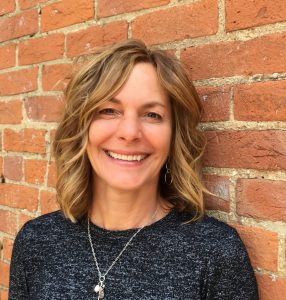The Art Of Being Enough
 The Art of Being Enough
The Art of Being Enough
It was mid-summer. As I sat in my quiet office and edited my manuscript, the dilemmas had increased instead of decreased. I shifted passages from past tense to past perfect. I changed lacked to lost when referring to my mother’s breast. I questioned if anyone cared whether I was eight or nine when my mother cut my hair short and I portrayed a drummer boy in the Christmas play.
I was waiting for my book designer to return from vacation, and the luxury of time compounded my quandaries. The designer was always prompt, clear and concise, never in doubt. She rechecked her efforts. She was nearly flawless. I could count on her to eliminate any of my final mistakes.
But could I count on myself to do the same?
Finally, a proof of my book, I’ll Have Some of Yours, had arrived in the mail and now lay in my hands.
I pursed my lips. My husband sensed my sour mood. “Why aren’t you happy?” He didn’t know the number of hours that stretched out ahead of me. I would comb through the finest of details, all over again.
I had one last chance to make it right on paper—and in my head.
The book contained forty short vignettes or essays. I wanted to complete my review of the galley copy by the end of the following day. I had four hours available that afternoon and evening, and four more on Tuesday morning. Eight. Forty essays divided by eight equaled five per hour.
I was nothing if not mathematical when it came to my writing. I employed parallel constructions and lists. I ensured there was symmetry to the number of chapters in each section and a balance of words in the essay titles, which I accomplished with all but one. That title was a direct quote about dementia and Alzheimer’s from the subject at hand, my mother. “Sometimes, I think I have that disease…What do they call it?”
Perfection had been a theme that ran rampant through my life and my book. My mother had been well practiced in the art of it. I was not. I once heard a radio interview where the subject spoke of the Japanese art of imperfection. I wasn’t Japanese. I had grown up with an Italian mother and Italians mothers were demonical about perfection—when it came to their children, their home, and their cookies. And if my mother had been aware, the care I provided to her.
In that perfection, I stalled out as I considered the conclusion to one particular essay.
In letters my mother had written to her children in college, she offered three lines of advice. Be careful. Be studious. Be good.
Be good had tripped me up over the years. As the middle child, with a ravishing older sister, sporty older brother, brainy younger sister and rebellious baby sister, the only wiggle room remaining in the family hallways was for someone who walked the straight and narrow—me.
I fell into a routine of being good to achieve perfection in my mother’s eyes.
I practiced the art of being good until my early teens. Hormones intervened, then settled back down. I continued my practice of “doing right” by parents who had raised me. However, it wasn’t a natural practice. I knew what the right thing was, hated doing it, and did so anyhow.
When my mother developed dementia, I transferred that goodness to caregiving duties. Pestering nurses, barking orders at aides, fussing with my mother’s closet. She had dementia. She wasn’t going to remember if I straightened up her clothes. But I did.
It took years of her seizures, falls, UTIs and, many times, yelling at me for what felt like hours but was only seconds, before I let go of that perfection. I allowed my mother to be who she was. And allowed this for myself.
I had conquered that mountain of being good—until I bumped up against it on page 153 where I had written about being good vs. being enough. For two days, I abandoned my deadline and rewrote the text. I added had to the verb tense and removed it. I inserted the word “still” at the beginning of the paragraph and deleted its use from the final sentence. I altered the second to last line.
Before coffee the next morning, I made one final change, yet didn’t press the send button to confirm any remaining changes.
Huffing, I left my house for a walk. I put on my headphones and listened to a podcast with a sportswriter. “Writing is hard work,” he said. “It should be hard and it is hard. But when it’s done, I move on.”
When I arrived home, my elderly neighbor, Earl, called. Burly with a mat of gray fuzz left on top of his head, Earl no longer walked steady and couldn’t drive much. We lived in the urban core with access to a mediocre grocery store but he couldn’t get there that day. Could I bring him something for his stomachache?
I rummaged through my pantry, found liquid and gel options for him, and hurried down the street. There he waited, hands shaking, barely able to greet me on his limestone stoop.
I had procrastinated so long on hitting send, I was thrown back into caregiver mode.
This time, I led Earl back into his apartment where stale cigarette smoke filled the air. Ignoring the clothes on the floor and the dusty bookcases, I told Earl to call me later.
Walking back out among construction trucks and residents rushing to work, I embraced being enough.
—
Annette Januzzi Wick is an author, writer and community connector. She grew up in northern Ohio. She graduated from the University of Akron with a Computer Science degree yet still sighs when her cell phone doesn’t work. For a time, she made her home in the Pacific Northwest until firmly planting her feet in Cincinnati. When she’s not writing, she is walking Cincinnati’s fifty-two neighborhoods or finding and making connections in the community.
She is the founder Three Arch Press, and has previously published I’ll Be in the Car (2006). I’ll Have Some of Yours (2019) is based on her award-winning blog, Find You in the Sun (www.findyouinthesun.com), where additional essays appear.
Her writings have appeared in the Alzheimer’s Association’s Cornerstone, Erma Bombeck Humor Blog, Grief Becomes You: A Narrative of Loss, and Movers and Makers, and have received awards from Writer’s Digest, National Society of Newspaper Columnists, Sinclair College, and USA Book News.
Annette is available for speaking events, book signings and writing workshops. Visit annettejwick.com to purchase her book or learn more. I’ll Have Some of Yours is also available for order through Amazon and major distributors.
 Annette Januzzi Wick longs to find the perfect care home for her proud, Italian mother, who is slipping further into dementia.
Annette Januzzi Wick longs to find the perfect care home for her proud, Italian mother, who is slipping further into dementia.
In her memoir, Annette shares gripping truths about the mistakes she makes before ultimately finding a place where her mother develops a crush, heckles an Elvis impersonator, and magically bonds with her daughter through Frank Sinatra’s songs. Whether she is breaking up a fight between her mother and the Easter Bunny, advocating for her mother to avoid a tracheotomy, or struggling to duplicate her mother’s cookie recipes,
Annette tries to balance the trials with the triumphs of being a daughter—and caregiver.
But can she and her mother love without memory—or regret?
I’ll Have Some of Yours is for anyone who longs to move past being a caregiver to find a deeply human and humane connection with someone you love.
Category: Contemporary Women Writers, How To and Tips































A wonderful visit to a place we all go in one way or another. Thanks for sharing it.